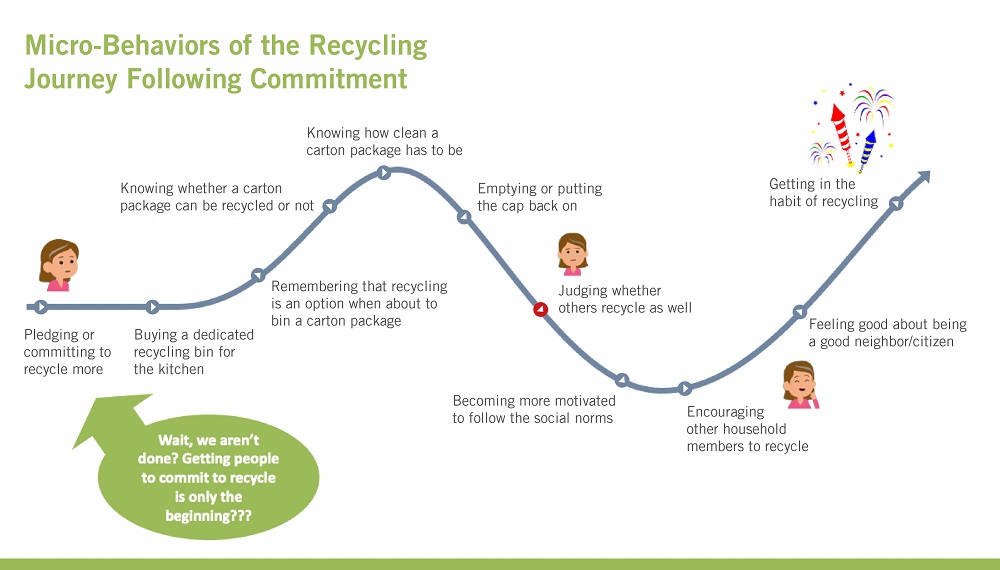To better understand how to improve recycling, in particular how to get more consumers to recycle their food and beverage cartons, the Carton Council of North America, composed of Elopak, Pactiv Evergreen, SIG Combibloc, and Tetra Pak, recently commissioned a behavioral science study which identified factors that play into recycling decisions.
The study revealed there are micro-behaviors most people need to go through after committing to recycle before it becomes a habit. While the study was specific to cartons, the micro-behaviors are relevant to all commonly recyclable materials and serve as a reminder that even after a consumer has committed to recycling more and/or better, there are still many steps required to make their behavior habitual.
Some of these factors are logistical, such as having the tools necessary to recycle, like a container or location to store recyclables in the kitchen. Others are more psychological and include things like judging whether others recycle; following social norms surrounding recycling; encouraging others in the household to recycle; and feeling positive about being a good neighbor and citizen for recycling.
"By studying how people make decisions and change their behaviors in real life, the Carton Council hopes to unlock new insights which can be leveraged to nudge people to increase the recycling of their food and beverage cartons," said Carla Fantoni, vice president of communications for the Carton Council and vice president, communications operations for Tetra Pak.
"While availability and the means to recycle, is the most influential element in terms of initiating recycling," said Fantoni. "The study revealed that psychological factors cannot be overlooked and play an important role in making recycling a habit."
"The Carton Council looks forward to sharing more on the findings in the near future as well as incorporating them into communications efforts moving forward," said Fantoni.
Since forming in 2009, consumer education is a significant part of the Carton Council's commitment to improving food and beverage carton recycling in the U.S. This includes providing marketing materials for communities to ensure residents know about carton recycling, as well as funding campaigns that strive to inform and motivate individuals to recycle their cartons. Commissioning the behavior science research aims to put more science behind future efforts. The report can be found here.















